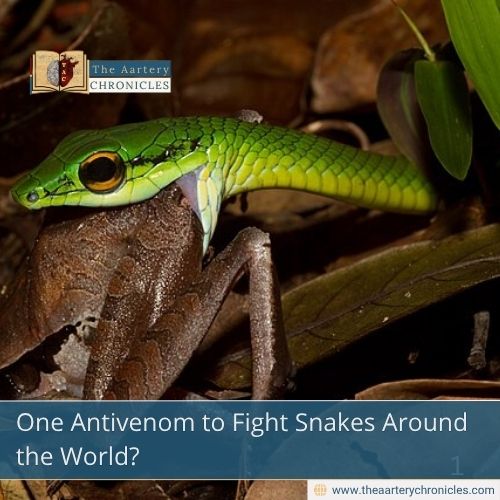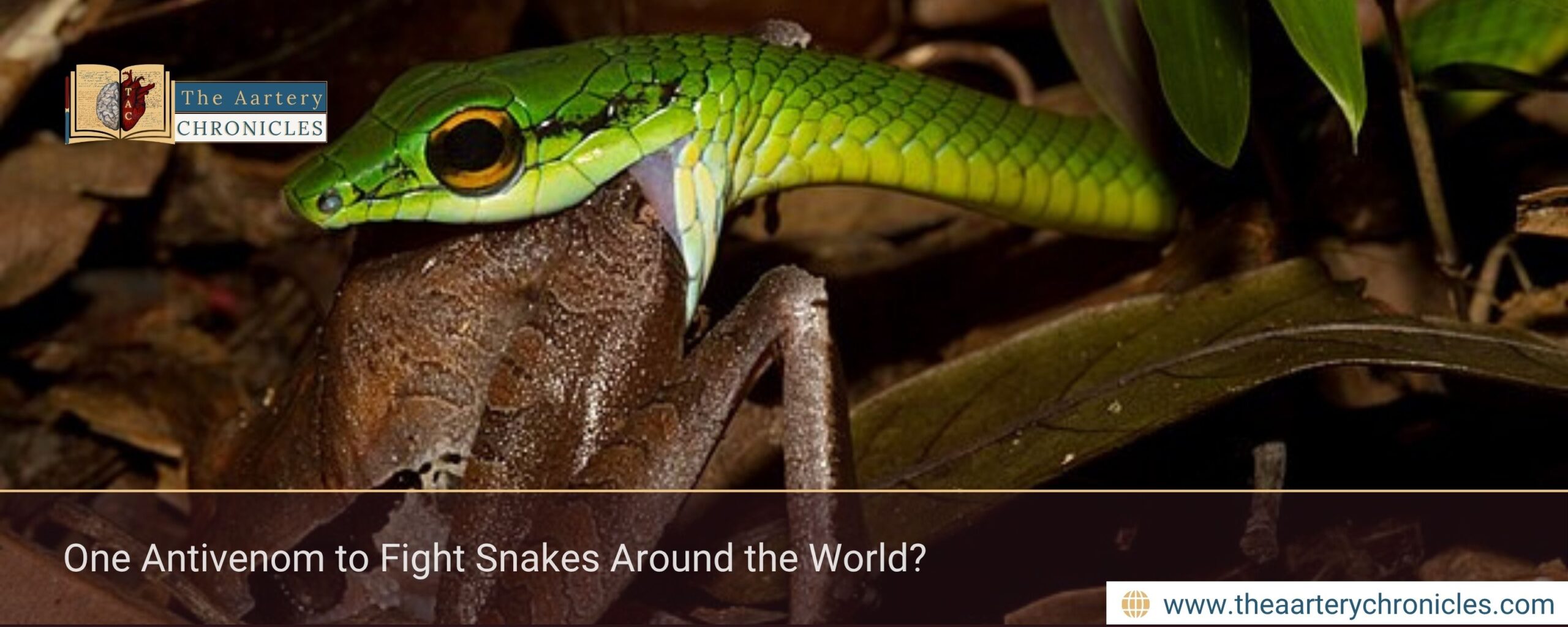

One Antivenom to Fight Snakes Around the World?
Snakebites continue to be a silent global health emergency, taking around 138,000 lives every year, according to the World Health Organization (WHO). Most victims live in rural or low-income regions where access to antivenom is limited and treatment delays often turn deadly.
Now, scientists believe that rare human antibodies could pave the way toward a universal snake antivenom a single treatment effective against many of the world’s most venomous snakes. This breakthrough could finally transform how snakebites are treated, saving thousands of lives worldwide.
Why Current Antivenoms Fall Short
Traditional antivenoms have remained largely unchanged for more than a century. They are typically made by injecting animals (such as horses) with small doses of snake venom and then collecting the antibodies produced in the animal’s blood.
However, these animal-based antivenoms are species-specific, meaning each works only for certain snakes. They are also expensive to produce and can trigger serious allergic reactions in patients. Because venom composition varies widely even among snakes of the same species, developing a single, universal treatment has long seemed impossible.
How Rare Human Antibodies Changed the Game
A new approach led by Dr. Jacob Glanville, CEO of Centivax, could change this narrative. His team has partnered with Tim Friede, a self-taught snake expert who developed an extraordinary resistance to venom after more than 800 controlled snakebites over 20 years.
Friede’s blood contains rare antibodies that can neutralize toxins from multiple snake species, including cobras, mambas, taipans, and rattlesnakes. Scientists theorized that if these antibodies could be isolated and reproduced, they might form the basis for a universal snake antivenom.
The Science Behind the Discovery
Using just 40 milliliters of Friede’s blood, researchers from Centivax, the U.S. National Institutes of Health (NIH), and Columbia University identified several powerful antibodies. They combined them into a cocktail designed to block key venom toxins that are common among many deadly snakes.
Key components of this antibody mix include:
- LNX-D09: Targets long-chain neurotoxins that damage the nervous system.
- SNX-B03: Neutralizes short-chain neurotoxins.
- Varespladib: A small molecule that disables phospholipase A₂ toxins, which cause severe tissue damage and clotting problems.
When tested in mice, this combination protected against venom from 19 different elapid species (including cobras and mambas). Thirteen species were completely neutralized, while six others showed major symptom reduction.
As Dr. Kartik Sunagar from the Indian Institute of Science explained, “If you disable one key toxin, you often neutralize the entire venom’s effect.”
Can One Antivenom Work for All Snakes?
While the progress is remarkable, experts caution that a truly global antivenom remains a complex goal. Dr. Andreas Hougaard Laustsen-Kiel from the Technical University of Denmark noted that snake species in Africa, Asia, and the Americas produce different toxin profiles, making it difficult for a single formula to cover all cases.
Moreover, producing human-derived antibodies at scale is still expensive, raising concerns about cost and accessibility, especially in regions where snakebite deaths are most common.
The Rise of Synthetic and Broad-Spectrum Antibodies
Despite these challenges, new research offers hope. Synthetic versions of these antibodies have shown broad neutralization power, protecting against venom from snakes across continents. For example, some antibodies successfully neutralized king cobras, monocled cobras, many-banded kraits, and black mambas species spread across Asia and Africa.
Dr. Sunagar remarked, “Achieving broad neutralization is no longer the main challenge,” signaling that science may have finally found the tools needed for a universal snake antivenom.
Conclusion
The Centivax team is also developing antibody cocktails aimed at viper bites, which account for a large share of snakebite deaths in Asia and Africa. Early animal trials in pet dogs in Australia are already underway, hinting at potential veterinary applications as well.
If these efforts succeed, the next generation of human-based or synthetic universal antivenoms could finally make snakebite treatment safer, faster, and more accessible, ending one of the world’s oldest medical challenges.
Rare human antibodies are showing unprecedented promise in the creation of a universal snake antivenom, capable of protecting against multiple deadly snake species. While cost and regional venom differences remain hurdles, ongoing research suggests that broad-spectrum, human-safe treatments are closer than ever to becoming a reality.
Source: Inputs from various media Sources
I’m a pharmacist with a strong background in health sciences. I hold a BSc from Delhi University and a pharmacy degree from PDM University. I write articles and daily health news while interviewing doctors to bring you the latest insights. In my free time, you’ll find me at the gym or lost in a sci-fi novel.
- Priya Bairagi
- Health News and Updates,People Forum
- 7 October 2025
- 22:00








